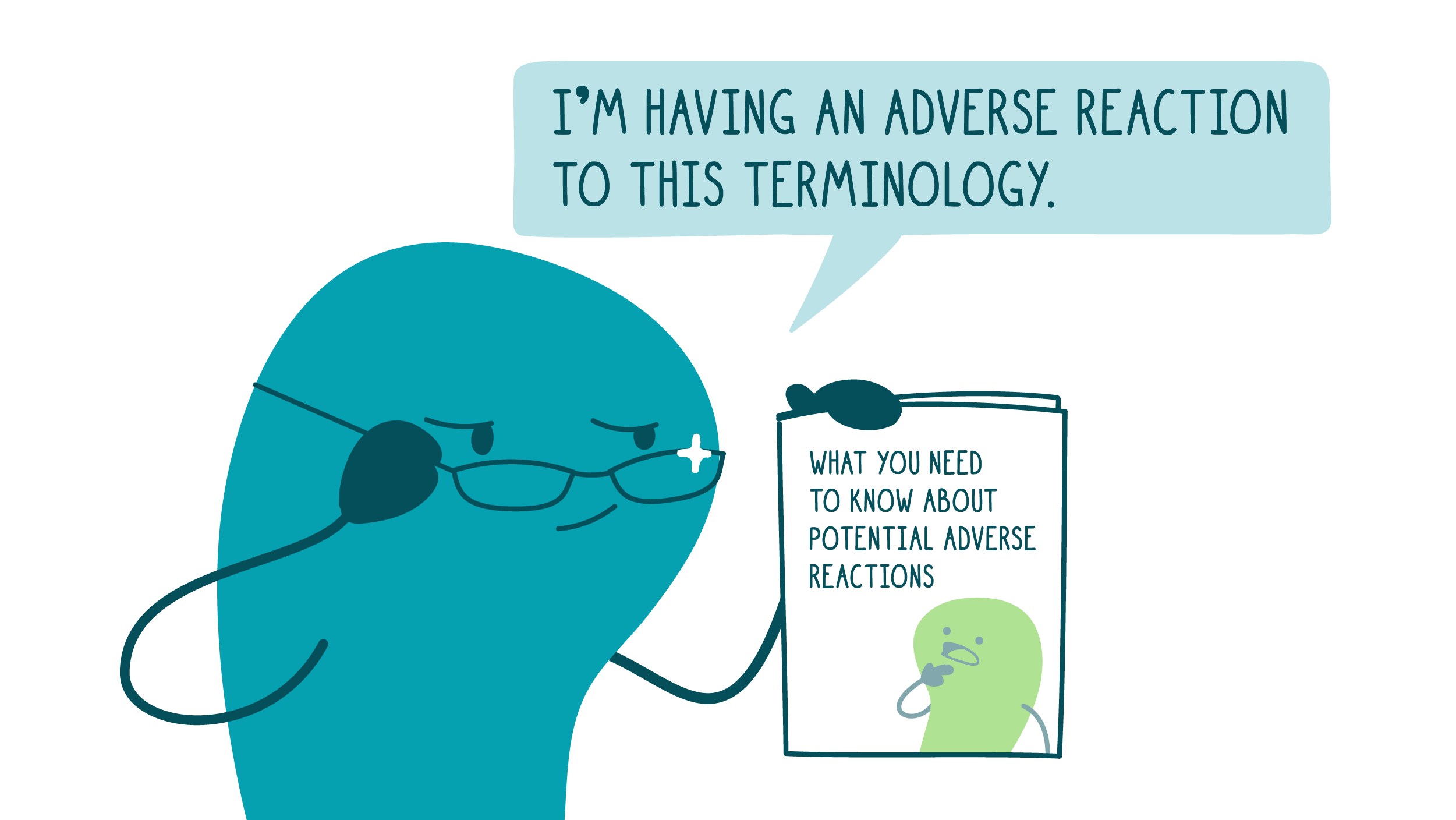
Here at We ❤️ Health Literacy Headquarters, we come across the word “adverse” a lot. Adverse drug events, adverse reactions, adverse childhood experiences… it’s a real health jargon regular! And, like most jargon terms, “adverse” has no place in consumer health materials.
Of course, as a health communicator, you’ll often need to communicate about an adverse something-or-other. For example, if you’re describing treatment options for a disease, explaining the potential side effects is really important!
But you can write about risks, side effects, and other unpleasant outcomes without calling them adverse anything! Here are a few simple plain language swaps to use instead.
Try this:
- Most people have mild side effects from the vaccine.
- If you have a bad reaction to the medicine, call your doctor right away.
- Kids who have difficult experiences in childhood are more likely to have health problems as adults.
Not that:
- Most people have mild adverse events from the vaccine.
- If you have an adverse reaction to the medicine, call your doctor right away.
- Kids who have adverse childhood experiences are more likely to have health problems as adults.
The bottom line: Ditch “adverse” in favor of plain language terms like “side effects” and “bad reactions.”
Browse recent posts